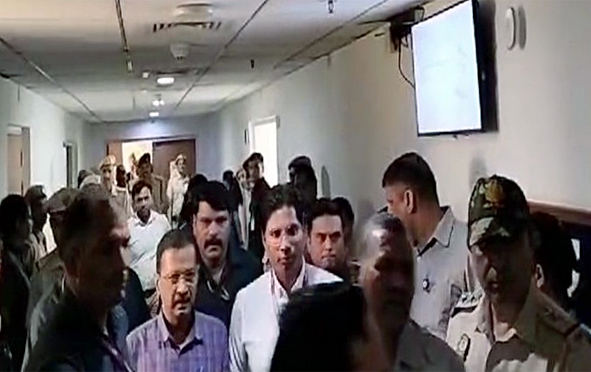In a significant ruling, the Delhi High Court declared on Tuesday that political parties would now come under the purview of anti-money laundering laws, specifically Section 70 of the Prevention of Money Laundering Act, 2002 (PMLA). This decision came in the case of Arvind Kejriwal v. Directorate of Enforcement.
Justice Swarana Kanta Sharma, delivering the verdict, underscored that according to Section 2(f) of the Representation of the People Act (RP Act), a ‘political party’ is defined as an ‘association or body of individuals’. Referencing Explanation-1 of Section 70 of PMLA, which equates a ‘company’ to an ‘association of individuals’, the court concluded that a political party could be construed as a ‘company’ for the purpose of the anti-money laundering law.
The ruling further elaborated, stating, “Sh Kejriwal [Arvind Kejriwal] is in charge of and responsible for the conduct of the business of Aam Aadmi Party, and prima facie would be liable for affairs of the party so as to attract Section 70(1) of PMLA.”
Section 70(1) of PMLA pertains to the liability of individuals in charge of a company at the time of an offence. It mandates punishment for every person responsible for the company’s affairs when the offence was committed.
The court’s decision came as it dismissed a plea by Delhi Chief Minister Arvind Kejriwal challenging his arrest by the Enforcement Directorate (ED) in connection with the Delhi Excise Policy case, along with the trial court’s order for his remand to ED custody.
During the proceedings, the ED argued that the Aam Aadmi Party (AAP) should be deemed a company under Section 70 of PMLA, with Kejriwal, as its National Convenor, being accountable for its business and thus, liable under Section 70(1) of PMLA.
Senior Advocate Abhishek Manu Singhvi, representing Kejriwal, contested this argument, deeming it untenable.
After weighing the arguments, the court found sufficient evidence to prima facie establish Kejriwal’s responsibility for AAP’s conduct, making him potentially liable under Section 70(1) of PMLA. However, the court noted that Kejriwal would have the opportunity to prove, at the appropriate stage, his lack of knowledge or due diligence regarding any contravention of PMLA provisions by his party.
Kejriwal was represented by a team of lawyers including Senior Advocates Amit Desai and Vikram Chaudhary, along with several other advocates.
The Enforcement Directorate was represented by Additional Solicitor General SV Raju, Special Counsel Zoheb Hossain, and a team of advocates.
This landmark ruling is expected to have far-reaching implications, bringing greater scrutiny to the financial activities of political parties in the country.

















Comments